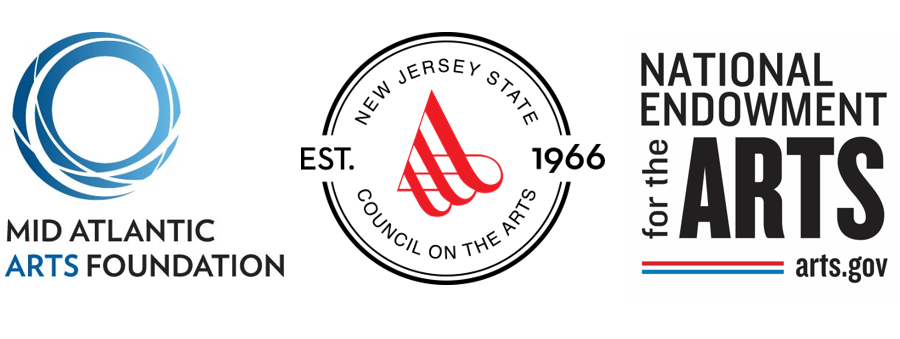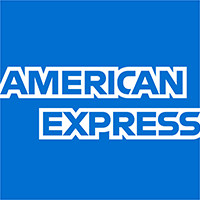Accessibility Training for Arts Administrators
-
Register
- Non-member - $99
- Member - Free!
Equal access to arts and cultural events are a driving force in the pursuit of cultural equity. Currently, one in five Americans living in the United States identifies as a person with a disability. And while the Americans with Disabilities Act (ADA) became law in 1990, people with disabilities still do not have full access to cultural events today. While providing physical access to those that attend your space or events is a good start, it's simply not enough anymore. The goal is to create exhibits and events that not only meet the specific physical needs of people with disabilities, but also makes them feel welcomed. Making adaptions to theatrical performances, visual arts exhibits, or workshops allows people with and without disabilities the same opportunity to take part in arts and culture experiences
This project is created in partnership with Mid Atlantic Arts Foundation and New Jersey State Council on the Arts, and is supported in part by the National Endowment for the Arts.

-
Contains 3 Component(s) Recorded On: 06/18/2019
The Americans with Disabilities Act (ADA) became law in 1990 and yet people with disabilities still do not have full access to cultural events today. This session will explore what accessibility entails and how presenters can move beyond architectural accessibility to programmatic accessibility.

About this Webinar
The Americans with Disabilities Act (ADA) became law in 1990 and yet people with disabilities still do not have full access to cultural events today. This session will explore what accessibility entails and how presenters can move beyond architectural accessibility to programmatic accessibility.
Learning Objectives
- Participants will gain an awareness of the core issues and principles for presenting accessible cultural events
- Participants will gain an understanding of strategies for making access an integral part of an organization’s mission, programs and outreach.
- Participants will understand how making accessibility a priority creates better experiences for people both with and without disabilities.
Rhoda Bernard
Managing Director, Berklee Institute for Arts Education and Special Needs
Rhoda Bernard is the Managing Director of the Berklee Institute for Arts Education and Special Needs, a catalyst for the inclusion of individuals with disabilities in all aspects of visual and performing arts education. She holds a Bachelor of Arts, cum laude, in government from Harvard University and a Bachelor of Music with academic honors in jazz voice from New England Conservatory. She earned both her Master of Education and Doctor of Education degrees from the Harvard Graduate School of Education. Bernard regularly presents research at conferences throughout the United States and abroad, and she provides professional development workshops for educators in local, national, and international forums. Her work has been published in several book chapters and in numerous journals, including Music Educators Journal; Music Education Research; Action, Criticism, and Theory for Music Education; Mountain Lake Reader; and Arts and Learning Research Journal. Bernard has been honored with the Berklee Urban Service Award (2017), the Boston Conservatory Community Service Award (2011), the Boston Conservatory Faculty/Staff Spirit Award (2007), and the Outstanding Dissertation Award, Honorable Mention (Second Place) from the Arts and Learning Special Interest Group of the American Educational Research Association. A vocalist and pianist who specializes in jazz music and Jewish Music in Yiddish and Hebrew, she performs regularly with a number of klezmer bands and has recorded two CDs with the band Klezamir.
Website: www.berklee.edu/biaesn
Judith Smith
Founding Member and Artistic Director Emerita, AXIS Dance Company
Judith Smith, Founding Member and Artistic Director Emerita of AXIS Dance Company, is one of the world’s driving forces in physically integrated dance. She was born and raised in the mountains of Colorado. Prior to becoming disabled in a car accident at age 17 in 1977, Judith was a champion equestrian. She transferred her passion for riding to dance after discovering contact improvisation in 1983. Judith helped launch AXIS in 1987 and she grew the Company to be the nation’s leading physically integrated dance ensemble. She has left an amazing legacy and vision for the future of AXIS and integrated dance.
Her advocacy and equity work led to the first-ever National Convening on the Future of Physically Integrated Dance in the USA, followed by six regional town halls throughout the country in 2016. This project, supported by the prestigious Doris Duke Charitable Foundation National Project Program, culminated in an extensive report and the launch of the AXIS Artistic Advancement Platform to Advance Artistry, Opportunity and Equity for Dancers with Disabilities. She has been instrumental in the creation of the Dance/USA Disability and Dance Affinity Group and co-chairs the group.
Judith is currently working as an independent consultant in dance and disability. She is an activist for the environment, animals and people with disabilities. She gardens for pollinators, birdwatches, raises butterflies and is involved in thoroughbred racehorse rescue and adaptive carriage driving.
Website: http://www.axisdance.org/advocacy
NEA Design for Accessibility -- A Cultural Administrator’s Handbook: https://www.arts.gov/sites/default/files/Design-for-Accessibility.pdf
Light for the World – Disability Inclusion Scorecard: https://lab.light-for-the-world.org/publications/disability-inclusion-score-card/
British Council Disability Arts International: http://www.disabilityartsinternational.org/about-us/
Make Accessibility Information Easy to Find on Your Website and Keep it Up to Date: https://www.flynncenter.org/about-us/accessibility-information.html
-
Contains 3 Component(s) Recorded On: 04/11/2019
Accessible marketing practices are not only ethical and often legally mandated, they are good for business. Through a combination of training modules developed by the Mid-Atlantic ADA Leadership Network and Cornell University, and real-life examples, attendees will gain information to build a case with leadership for accessible marketing practices, as well as techniques that can be immediately implemented.

About this Webinar
Accessible marketing practices are not only ethical and often legally mandated, they are good for business. Through a combination of training modules developed by the Mid-Atlantic ADA Leadership Network and Cornell University, and real-life examples, attendees will gain information to build a case with leadership for accessible marketing practices, as well as techniques that can be immediately implemented.
Learning Objectives:
At the end of the session, marketing professionals will gain information to build a case with leadership for accessible marketing practices, learn culturally-appropriate communication strategies, and apply skills in effective communication and accessibility.
This project is created in partnership with Mid Atlantic Arts Foundation and New Jersey State Council on the Arts, and is supported in part by the National Endowment for the Arts.

Jessica Hunt
Attorney Advisor, DC Office of Disability Rights
Jessica L. Hunt is the Attorney Advisor for the DC Office of Disability Rights, and is a licensed attorney in DC, KY, and VA. In her current position, Ms. Hunt processes complaints of disability discrimination and provides guidance and training to District of Columbia employees and residents on the Americans with Disabilities Act (ADA), the Rehabilitation Act, the Fair Housing Act (FHA), the Architectural Barriers Act (ABA), and disability sensitivity and etiquette. She serves as part of the Mid-Atlantic ADA Leadership Network’s cadre of trainers, and her areas of expertise include service animals, housing and shelter situations, and reasonable accommodation. Additionally, Ms. Hunt acts as an Accessibility Officer during special events and state and local emergencies to provide technical assistance and training in the District’s Emergency Operations Command Center.
Prior to her employment with ODR, she spent four years at the U.S. Department of the Army Headquarters, Office of Civil Rights, as an Equal Employment Opportunity Specialist. She holds a JD from the University of Kentucky and a Masters in Secondary Special Education and Transition from The George Washington University.
DC Office of Disability Rights: https://odr.dc.gov/
Kali Wasenko
External Engagement Specialist, DC Commission on the Arts and Humanities
Kali has been proud to encourage inclusion, diversity, equity, and accessibility at the DC Commission on the Arts and Humanities initiatives in the cultural community of Washington, DC through building relationships and implementing creative ways to engage current and potential grantees. She spearheaded the creation of the District’s first audio-tactile rendering of a photograph from District’s fine art collection, coordinates monthly workshops aimed at improving business practices, and managed the agency’s Marion S. Barry Summer Youth Employment program, which was recognized as the most outstanding government host site.
In previous positions, Ms. Wasenko developed an international leadership and public-speaking training program for Best Buddies International. Additionally, she championed the creation of a Disability Sensitivity Training video for the DC Office of Disability Rights that is shown throughout DC training materials and has been utilized internationally. She has been a guest lecturer at DRD Vietnam, Sri Lanka Fulbright Commission, and University of Kelaniya in Sri Lanka in areas of physical accessibility and advocacy.
Kali serves the District of Columbia as a member of the Mid-Atlantic ADA Leadership Network, DC Advocacy Partners, and the Mayoral-appointed DC Developmental Disabilities Council. She holds a bachelor’s degree in art history from the University of Michigan and master’s degree in clinical social work from Barry University.
DC Commission on the Arts and Humanities: https://dcarts.dc.gov/
Twitter: @KaliWasenko
-
Contains 4 Component(s) Recorded On: 02/06/2019
Accessibility begins with policies and organizational buy-in from every department – from the Board of Directions to the house staff and ushers. Without a comprehensive plan, true accessibility is disjointed and difficult to achieve. This session will ask participants to look at each department of their organization and how those departments impact the access efforts of the organization. In this workshop, participants will have the opportunity to understand the need for and how to develop a comprehensive ADA/Accessibility plan.

About this Webinar
Accessibility begins with policies and organizational buy-in from every department – from the Board of Directors to the house staff and ushers. Without a comprehensive plan, true accessibility is disjointed and difficult to achieve. This session will ask participants to look at each department of their organization and how those departments impact the access efforts of the organization. In this workshop, participants will have the opportunity to understand the need for and how to develop a comprehensive ADA/Accessibility plan.
Overview of Session Content
- A brief introduction of disability from a multi-cultural perspective – including a discussion of the models of disability, disability etiquette and language.
- Provide participants with sample plans and assessment tools that provide guidance in the development of an accessibility plan.
- Review best practices for design of organizational policies i.e. staff and volunteer training, grievance procedures, ticket policies, non-discrimination, emergency evacuation and diversity policies.
- Review how various departments need to be an integral part in the overall ADA plan – including programming, marketing, facilities, and development.
- Budgeting – how to develop an accessibility budget –an essential component of your ADA plan.
- Implementation – how to go about implementing the various stages of the plan
The conclusion of this webinar will allow participants to discuss issues, ask questions, and look at next step scenarios.
Learning Objectives
Participants will:
- understand the need for having an accessibility plan and leave with a framework to bring back to their organizations to design their own plans.
- understand that the development of an ADA Plan will serve as a roadmap for the organization as they advance their access goals and objectives.
- understand that by organizations having a plan in place, implementation of accessibily goals are not overwhelming and many action items are readily achievable.
This project is created in partnership with Mid Atlantic Arts Foundation and New Jersey State Council on the Arts, and is supported in part by the National Endowment for the Arts.

John McEwen
Executive Director, New Jersey Theatre Alliance
John McEwen serves as the Executive Director of the New Jersey Theatre Alliance, a service organization for the state’s 33 professional theatres.
Prior to the Alliance, John served as Vice President for Development of the New Jersey Network Foundation where he was responsible for a $7 million annual fund. Prior to joining NJN, John served as the Director of Development for Paper Mill Playhouse where he implemented the theatre’s award-winning access services and the Adopt-A-School Project, and was responsible for raising $3.5 million for the annul fund, strategic planning and board development.
John is the founder and Chairman of the Cultural Access Network Project, a program of New Jersey Theatre Alliance and the New Jersey State Council on the Arts that assists the state’s cultural organizations as they make their programs and services accessible to individuals with disabilities. John serves as a trustee for ArtPRIDE New Jersey, Center for NonProfits, Montclair State University’s College of the Arts, and the Fund for the New Jersey Blind.
John’s awards and achievements include the first Excellence in Accessibility Leadership Award from the Christopher Reeves Paralysis Foundation and the Kennedy Center for the Performing Arts, The Robert Smyth Outstanding Professional Fundraiser Award from AFP/NJ Chapter, Ann Klein Advocate Award from the Community Health Law Project, Award of Excellence from Passage Theatre, the Governor Kean and Byrne Advocacy Award from Paper Mill Playhouse, a Citation of Excellence from the New Jersey State Council on the Arts, and the Community Service Award from the New Jersey Department of Recreation.
John is a graduate of Leadership/New Jersey and the Executive Program for Nonprofit Leaders in the Arts at Stanford University, a partnership between the Stanford Graduate School of Business and National Arts Strategies. John received his Bachelor’s of Arts from Montclair State University and his Master’s of Arts from New York University
Website: https://njtheatrealliance.org/
Twitter: @NJTheatre
Beth Prevor
Executive Director, Hands On
Beth Prevor is a co-founder and Executive Director of Hands On, an arts service organization that advocates for access to the cultural arts for the Deaf community and audiences with disabilities. For the last 30+ years, Hands On has been providing access for the Deaf and hard of hearing communities of NYC through sign language interpreted theater at some of NYC’s most prestigious theaters including The Roundabout Theater Company, The New York Shakespeare Festival/Public Theater and The New Victory Theater.
As Executive Director, Beth works with arts organizations to ensure inclusion for all by providing marketing, community engagement and audience development strategies. As a disabled advocate, Beth is active as an advisory member to many groups including, The Shubert Accessibility Committee, The New Jersey Theatre Alliance, and the Museum, Arts and Culture Access Consortium (MAC). She has led workshops on accessibility and the arts for organizations around the country including the Kennedy Center’s LEAD (Leadership Exchange in Arts and Disability) Conference, Americans for the Arts, The National Arts Marketing Project, the Alliance of Resident Theaters/New York (ART/NY) and Theater Communications Group (TCG). She currently works as a Disability Consultant with ART/NY.
She is the 2015 recipient of the John F. Kennedy Center’s Excellence in Accessibility Leadership Lifetime Achievement award.
Website: Handson.org
Twitter: @HandsOnSign
New Jersey Theatre Alliance ADA Planning Page: https://njtheatrealliance.org/ada-planning
The Kennedy Center LEAD Conference: http://education.kennedycenter.org/education/accessibility/lead/conference.html
Web Accessibility Initiative (WAI):
https://www.w3.org/standards/webdesign/accessibility
Disability and Health Inclusion Strategies:
https://www.cdc.gov/ncbddd/disabilityandhealth/disability-strategies.html
Centers for Disease Control and Prevention
http://www.cdc.gov/features/emergencypreparedness/
South Arts-ArtsReady
"Ready Now!" Toolkit
The "Ready Now!" Toolkit (http://www.ohsu.edu/xd/outreach/occyshn/upload/ReadyNowToolkit.pdf) from the Oregon Office on Disability and Health is for people with disabilities and emphasizes independence, allowing each person to address his or her specific needs.
Get Ready! Toolkit
The Get Ready! Toolkit (http://dhss.alaska.gov/dph/wcfh/Documents/disability/GetReadyWebaccessible.pdf) from the Alaska Health and Disability program will help you prepare for an emergency. Alaska also developed the Get Ready! Toolkit webinar(https://dhss.adobeconnect.com/p2an0b2anso/) to assist Alaskans and others with disabilities and their caregivers in putting the Get Ready!Toolkit into action.
Smart911: https://www.smart911.com/



